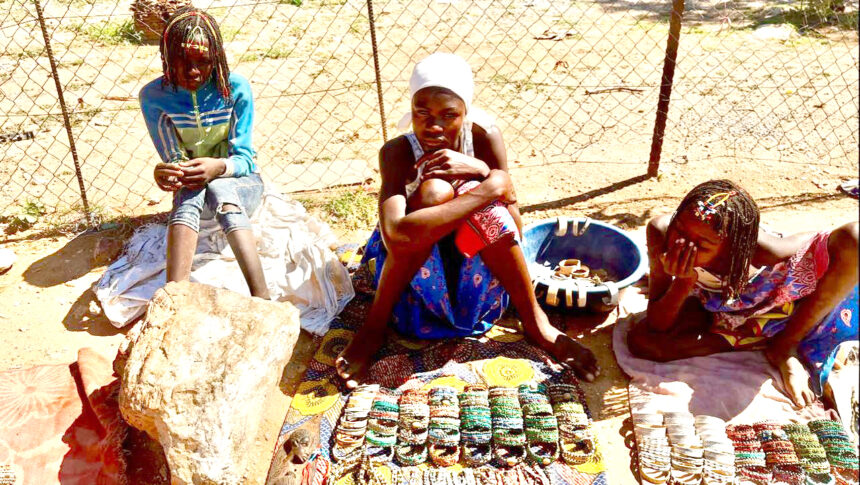OUTJO – In a distance from shops and restaurants in the centre of Outjo, clearly visible to passersby, is a group of Ovahimba and Ovazembas, mostly comprising women and children.
Susan Muhume (18), in a soft tone orates a selling pitch expected to be done by an elder, as she convinces this publication to purchase their handmade crafts of pottery, wood carvings and beaded jewellery.
With a little bit of communication in English, she continued to sell her products, which further led to the probe of her educational background. “All I want now is to be educated. All we yearn and crave for is education, because we have noticed the impact that it can have on the well-being of a person,” she said.
Muhume stated that it is important for the government to equally accommodate children born in Namibia to foreign parents.
“We are here to sell these art pieces with the hope that we will make enough to at least pay for school. That is a difficult process, because business has been slow. Once you sell something, there is a need to buy food, which we share among ourselves,” she said.
The group of more than 30 women and children originally came from Opuwo for “greener pastures”. However, they found themselves on tough grounds of Ehangano informal settlement of Outjo to fend for themselves.
As enshrined in the Namibian Constitution and the United Nations Convention on the Rights of the Child, strongly supported by the Education Act (Act No 16 of 2001), there is a lot of emphasis on the right to education for all children.
The United Nations International Children’s Emergency Fund (Unicef) has conducted extensive studies to determine that many children from marginalised and vulnerable communities do not have access to quality education.
This finding particularly applies to the San, Ovahimba, Ovazemba and children from poor and remote rural communities. “Educationally-marginalised children are those who may not have access to formal education because of many forms of deprivation, including the socio-economic, political and cultural. The high levels of non-attendance at school mean that individuals do not reach their full potential.
“As adults, they are not able to contribute positively to the economy or society, leading to cycles of inter-generational poverty in these communities,” states Unicef.
-psiririka@nepc.com.na



